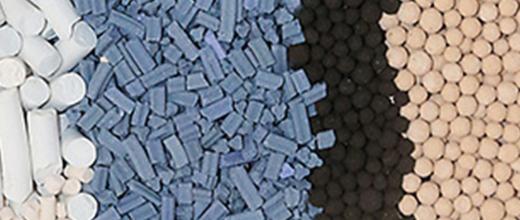
News in brief
Faujasite zeolite: a new generation is born
THESIS OF CÉLINE PAGIS, YVES CHAUVIN PRIZE 2019

News in brief
The ROAD4CAT chair one year in
The 1 st industrial chair within the IdexLyon project a, ROAD4CAT (RatiOnAl Design for CATalysis), launched in June 2018, brings together IFPEN and the Chemistry Laboratory at École Normale Supérieure

Individual page
Marie MARSIGLIA (Moiré)
Researcher - PhD in Physical-Chemistry
In 2012, Marie MARISGLIA (MOIRE) obtained her Master Degree in Chemistry and the French Engineer title from ENSCR. Three years later, she became PhD in Physical Chemistry from UPMC and won IFPEN My

Individual page
Céline CHIZALLET
Project Leader, ab initio calculations for Catalysis
After a PhD in heterogeneous catalysis (Paris 6 Univ., 2003-2006), during which I acquired skills in mineral synthesis, spectroscopies, catalytic testing and computational modelling, I chose to

News in brief
For xylene separation, hierarchy is not all bad
The three xylene a isomers are each employed in numerous growth market applications (polymers, plastifiers and resins). It is thus vital to improve the efficiency of the separation processes for these

News in brief
Raman: the secret of a successful separation
The development and optimization of chemical processes increasingly involves the instrumentation of pilot and industrial units with inline effluent analysis technologies, capable of supplying relevant

News in brief
Hélène Olivier-Bourbigou : Scientific Woman of the Year – The 2014 Irène Joliot-Curie Prize
Scientific Woman of the Year – The 2014 Irène Joliot-Curie Prize: Hélène Olivier-Bourbigou, Head of research in the field of molecular catalysis at IFPEN


News in brief
Where aviation fuels are concerned... compromise is the name of the game
In the aviation sector, fuels derived from hydrotreated vegetable oils (HEFA a) are seen as an alternative to petroleum based Jet A-1 b to reduce the environmental footprint of air transport. However

News in brief
HTE in a milli-fixed bed reactor boosts the development of slurry catalysts
THÈSE DE CHARLES BONNIN








